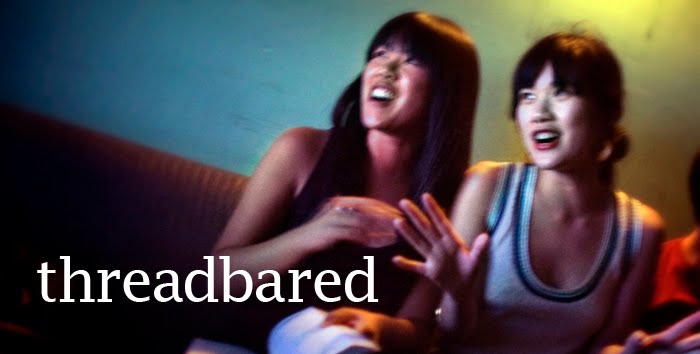
There are some signs that the best days of the fashion blogger phenomenon may be behind us. This isn't to say that fashion bloggers are going away but the public discourse about them and the value of their digital labors seems to have shifted in the past couple of months.
- First, Elle editor Anne Slowey described Tavi Gevinson's commissioned column for Harper's Bazaar as "gimmicky" and then Huffington Post's style editor Lesley Blume was quoted as saying that asking adult women to take style cues from young women like the Olsen twins and Gevinson was "insulting." (Read here.)
This month, Barney's Creative Director Simon Doonan told GQ magazine that he wants his front row seats back from the teen/tween bloggers that have overtaken runway shows. He even throws a little snark at 13 year-old blogger: "Since they are all about my height, I am going to impersonate one of them. I am going to wear a doily on my head (Tavi!) and tell everyone I'm a teen blogger."
The easiest explanation for this backlash is to cite the techno-generational divide: the persnickety old guard vs. the whipper-snapping new guard. And I think that's part of it, but only part of it. Instead of resting the critique of this backlash entirely on the laps of cantankerous sartorial Luddites, I think it's useful to consider the political economy in which this backlash emerges.Late last week, New York Times fashion writer Guy Trebay told WWD that he doesn't really care "whether Bryanboy gets excited by a handbag or something."
Not too long ago, fashion/style bloggers were embraced as the embodiment of fashion's democratization. Along with cheap chic fashion, fashion/style bloggers were heralded as proof that fashion had finally become accessible to everyone despite race, gender, class, physical location, time zone, etc. The free flow of fashion objects and images across socioeconomic differences and fiber optic cable lines (as with the deregulated circuits of trade, capital, and labor) signified, according to numerous fashion editors, writers, and neoliberal politicians, a truly democratic society where everyone has the right to access the commodities that will enable them to practice their freedoms of expression, self-determination, and consumer choices. Free market agency, we were told, is coextensive with political agency.
Drowning out previous celebrations of democratization are anxious cries about the massification of fashion journalism. Consider Trebay's statement: "It sounds like a very Establishment view, but I think that the Establishment is composed, in general, of really skilled people." The inference, of course, is that bloggers (now positioned as a threat to the Establishment rather than as a sign of the Establishment's fairness and openness) are unskilled. But the significance of massification rhetoric has implications that go far beyond a techno-generational divide.
Massification rhetoric has historically secured dominant power relations by producing a category of collective identification called "the masses" and then casting suspicion on them as unruly, unthinking, and uncultured. Moreover, as Andreas Huyssen has pointed out, the categorization of "the masses" carries with it gender inscriptions that imagine the masses (here, the collective of "teen/tween bloggers") as subjective, emotional, and thus feminine. This is evident in the Pulitzer Prize winning fashion writer Robin Givhan's assessment of fashion bloggers: "[T]heir opinions [are] suspect. They're too invested. They're biased. Passion gets in the way of truth-telling." Establishment fashion journalists, we are meant to understand, are dispassionate and objective reporters.
I don't think that the recent backlash against bloggers suggests that the era of fashion's democratization is coming to a close - it's difficult to imagine that fashion, in this economic climate, would risk alienating any potential customers especially customers with as much cultural capital as star bloggers like Gevinson and BryanBoy. However, I think this backlash does signal a shift in the popular understanding of "democracy" in the creative economy, a return to a social theory of apprenticeship in which hierarchies of power are not seen as opposed to democracy and free market societies but rather as opportunities for "paying one's dues" and "earning one's stripes." This is precisely the link Weber observed between the Protestant ethic and the spirit of capitalism.
Exclusion and exploitation in the forms of higher rates of un- and underemployment and free labor (typical in the new creative economy, in general, and in fashion, in particular), are incorporated and naturalized as part of the cost of democracy. Enduring exploitation becomes a virtue - it demonstrates a faith in and a faithfulness to the meritocracy and magicality of capitalism.



